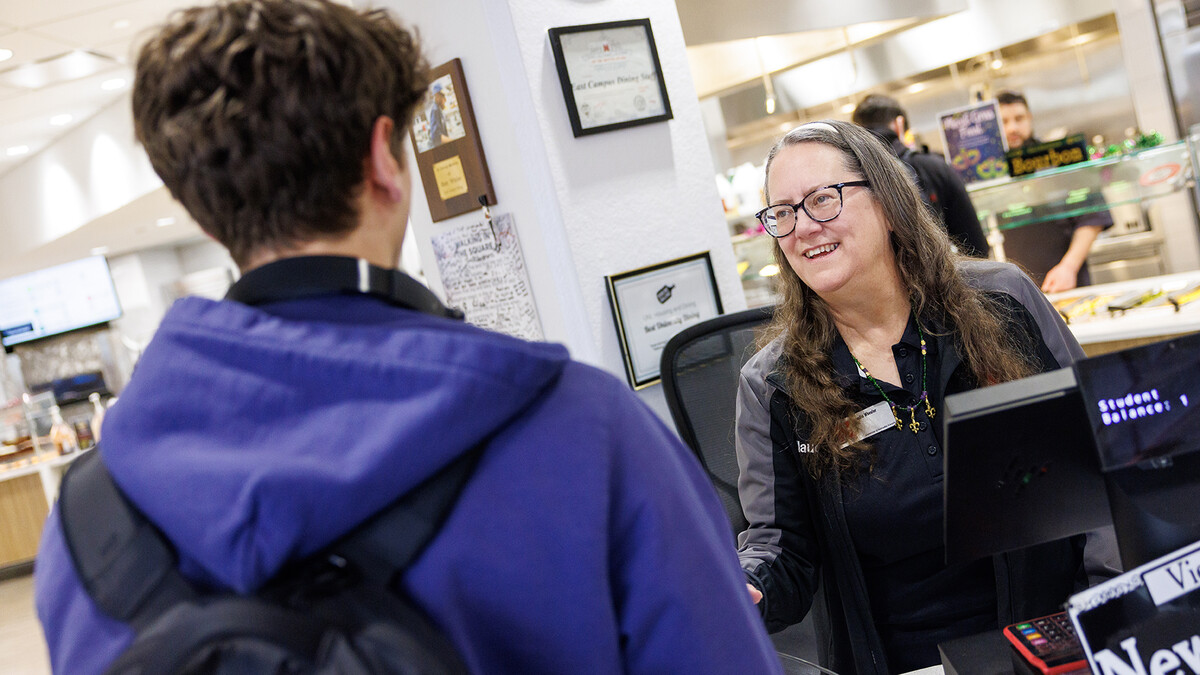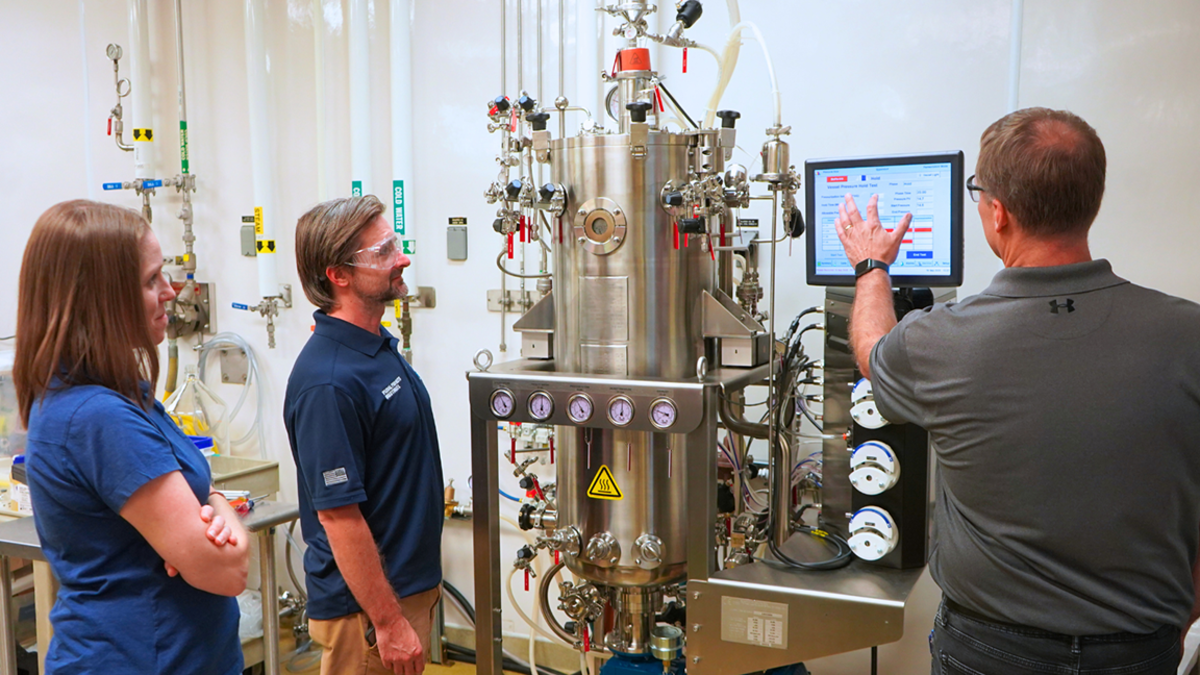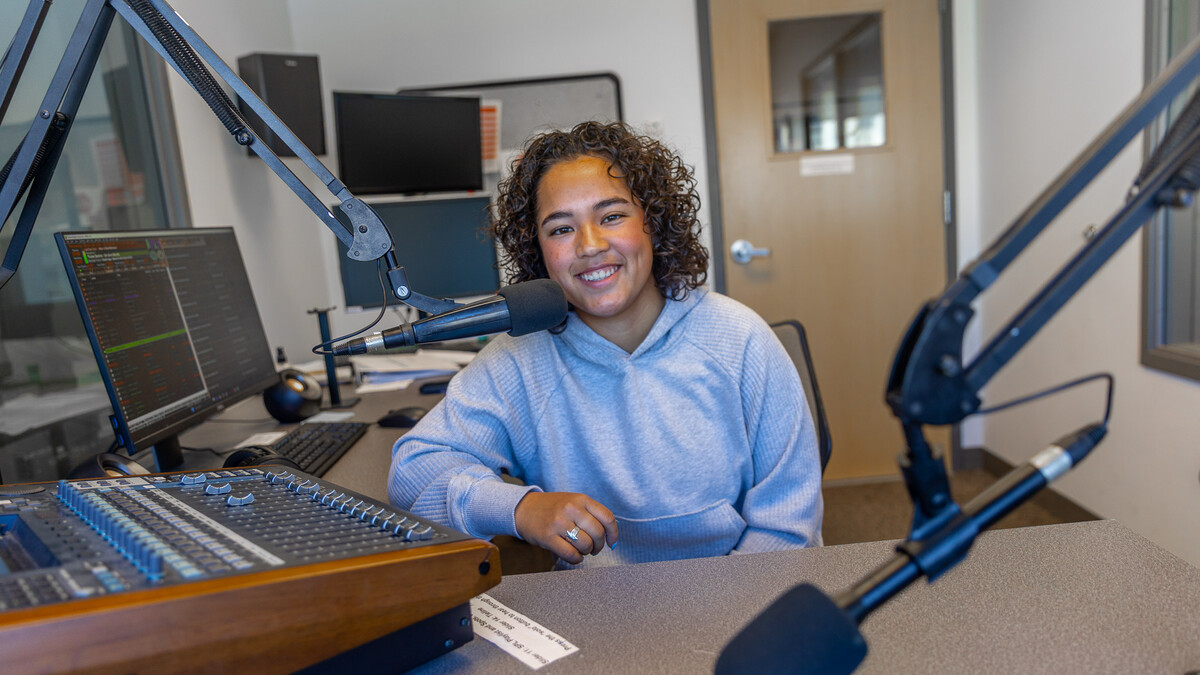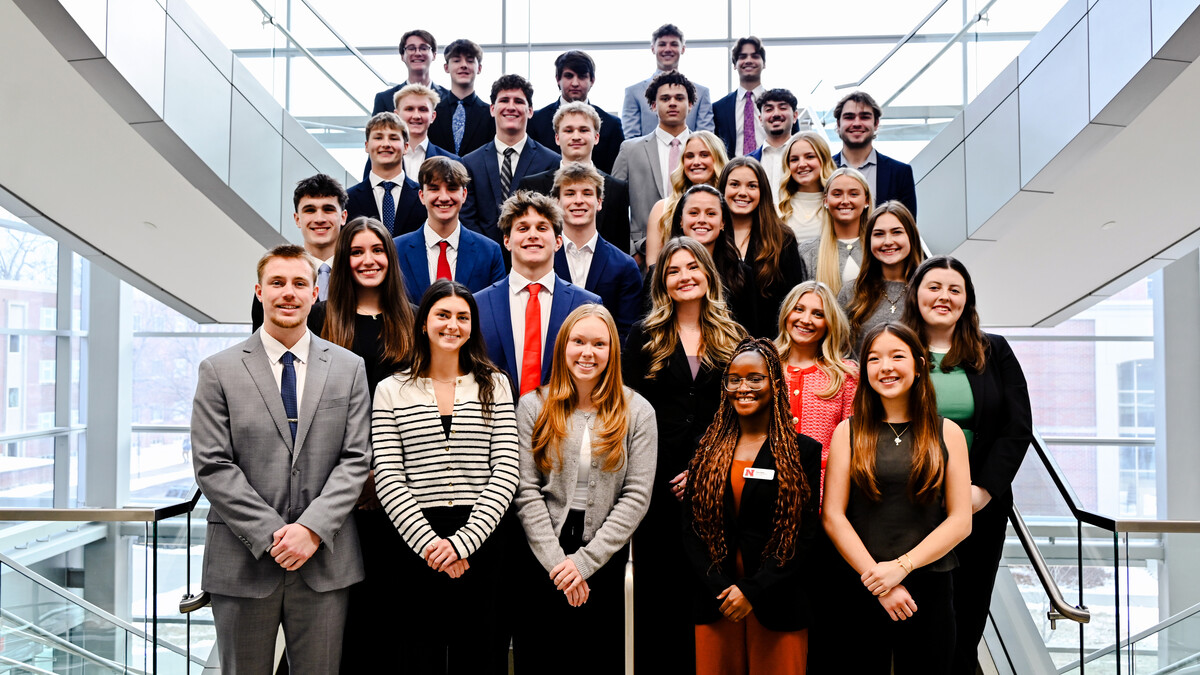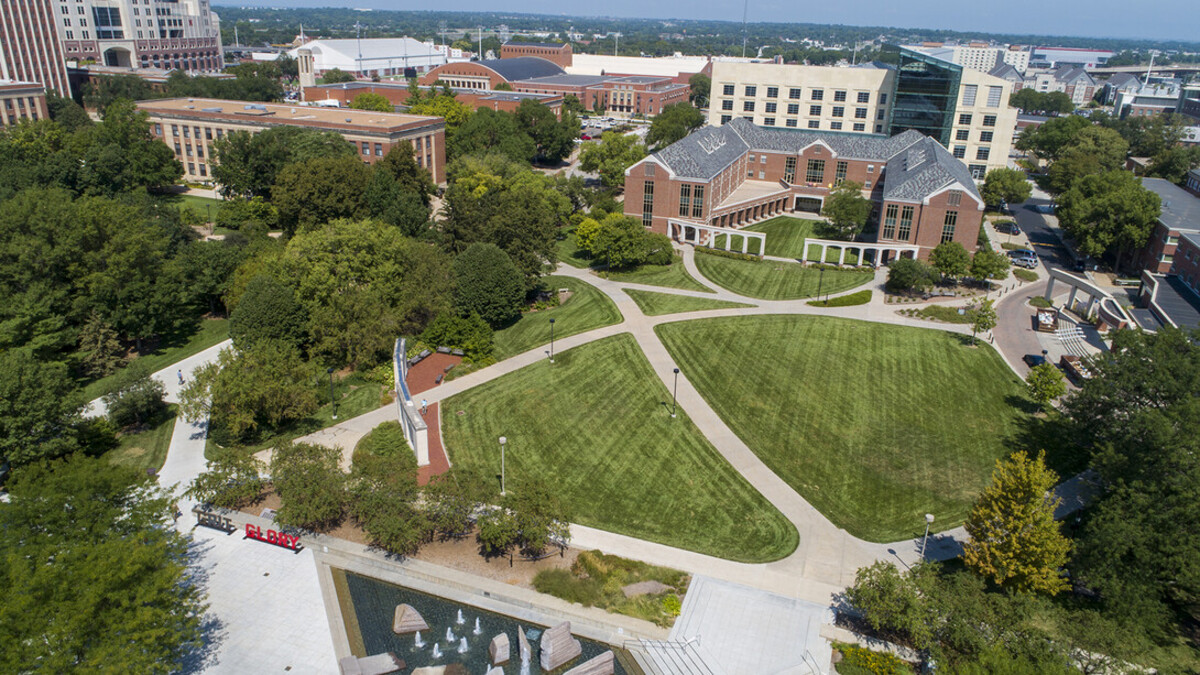
Three faculty members in the University of Nebraska–Lincoln’s Space, Cyber and Telecommunications Law program were interviewed for national news stories in August. The stories were among 50-plus featuring Husker faculty, staff, students, alumni and programs during the month.
Frans von der Dunk, Perlman Alumni and Othmer Professor of Space Law, was interviewed for an Aug. 13 Live Science story on what space law says about moon clutter. According to the 1967 Outer Space Treaty, he said, anyone can put anything on the moon “as long as it is for peaceful purposes.” However, he said many nations are starting to realize that the accumulation of space junk could soon make it impossible to access space safely.
Von der Dunk was cited in an Aug. 13 Inverse article on the implications of an Israeli spacecraft crashing on the moon in April and spilling cargo that included several thousand dehydrated tardigrades. He was also featured in an Aug. 29 Space.com article on who investigates space crimes.
Elsbeth Magilton, executive director of the space law program, was quoted in an Aug. 16 Verge article on who decides what gets sent to space.
“I think individually, nationally, all of these countries need to be thinking about these questions,” she said, “and asking ourselves what kinds of norms of behavior are we going to set by what we approve to send to space?”
Matthew Schaefer, Haggart and Work Professor of International Trade Law and co-director of the space law program, was interviewed for an Aug. 31 Washington Post article. He discussed who is liable for accidents caused by space debris, and the need for new laws related to space travel and tourism.
Other coverage:
Chigozie Obioma, English, is part of the lineup for Wordfest’s Imaginarium Festival in Calgary, Canada, in October. The Calgary Herald published an article on the lineup Aug. 1. The story was picked up by more than 35 media outlets.
Obioma offered his thoughts on late author Toni Morrison for an Aug. 6 USA News Hub roundup. Morrison died Aug. 5 at age 88. Obioma also wrote an Aug. 7 piece for The Guardian on Morrison.
Yanbin Yin, food science and technology, has earned a National Science Foundation CAREER award to create advanced computational tools to quickly identify CAZymes, a class of enzymes found in all living organisms. Feedstuffs ran an article on the research Aug. 1.
Matt Spangler, animal science, was interviewed for an Aug. 1 Beef Magazine article on whether genomic tests can work for commercial beef producers. “This process could provide a much-needed feedback loop of information in the beef industry and, in return, allow for the potential of managing commercial animals based on genetic potential,” he said. “I think that’s where we need to head from an industry perspective.”
Bruce Dvorak, civil engineering, was interviewed for an Aug. 1 National Provisioner story on wastewater treatment. “There are very big opportunities for tech suppliers to help facilities find better ways to collect water and waste, produce biogas (methane) or burn pork grease (to replace gas as fuel),” he said.
James Schnable, agronomy and horticulture, and Iowa State University colleagues are developing a wearable sensor that can measure a crop’s sap flow in real time to determine water usage. The researchers hope to better understand and eventually improve how crops respond to drought. Stories on the research appeared in six Nebraska media outlets, as well as AgFax, Farms.com, Fierce Electronics and Midwest Messenger.
Precision-agriculture research by Santosh Pitla, biological systems engineering, and Schnable was featured in an Aug. 19 Progressive Farmer article. Pitla and graduate students have built Flex-Ro, short for flexible robot, a device that can be controlled remotely and is capable of full autonomy for field work. Schnable and colleagues are developing a wearable sensor that can measure a crop’s sap flow in real time to determine water usage.
A Husker research team led by Schnable has earned a $2.7 million, three-year grant from the U.S. Department of Energy to develop a rapid, efficient method for characterizing the functions of genes in sorghum. The team also includes Yufeng Ge, biological systems engineering; and Brandi Sigmon, plant pathology. Stories on the research have appeared in The Grand Island Independent, Nebraska Ag Connection, Norfolk Daily News, York News-Times and Seed Today.
Beginning this fall, the university’s Barkley Speech Language and Hearing Clinic will offer specialized speech therapy to individuals with Parkinson’s disease. The program, which will help those with the disease preserve their speech and voice, is supported through a 2019 Speak Out and Loud Crowd Grant from the Parkinson Voice Project. BTN.com published an article on the program Aug. 2.
A 2015 study by Anne Schutte, psychology; Julia Torquati, child, youth and family studies; and Heidi Beattie, assistant professor of psychology at Troy University, was highlighted in an Aug. 3 Babygaga article on the perks of letting children explore nature. The study theorized that children become more focused in a restorative environment such as nature.
Dane Kiambi, advertising and public relations, has conducted a study showing that levels of knowledge of Kenyan journalists on important aspects of public-opinion polling is lacking. Standard Digital published a story on the study Aug. 5.
Matt Waite, journalism, was quoted in an Aug. 5 Efficient Gov column on how drones can reduce costs for first responders and where to find grant funding for them.
Ismail Dweikat, agronomy and horticulture, was interviewed for an Aug. 7 Lincoln Journal Star article on Midwest Hop Producers, one of 10 farms licensed to grow hemp in Nebraska. The farm is collaborating with Dweikat, a hemp expert who has been researching the cannabis plant for at least five years. The story was picked up by eight Nebraska media outlets and more than 20 others nationwide.
Al Dutcher, School of Natural Resources, was quoted in an Aug. 7 Illinois Farmer Today article on farmers struggling with late-planted crops. Dutcher said current weather patterns strongly suggest an early freeze this year. Cooler weather in August will slow development and reduce the growing-degree days necessary to push crops more quickly toward maturity, he said.
Silicon Prairie News published an Aug. 7 article on Virtual Incision Corp., a surgical-robotics company co-founded by Shane Farritor, mechanical and materials engineering; and Dr. Dmitry Oleynikov, chief of gastrointestinal and minimally invasive surgery at the University of Nebraska Medical Center. The company, located at Nebraska Innovation Campus, recently secured additional funding.
The Alpha Omicron Pi sorority house at Nebraska was featured in Her Campus’s Extreme Sorority Houses on Aug. 7.
A Cornhusker Economics report released this spring by the Department of Agricultural Economics and a recent paper by David Aiken, agricultural economics, were cited in an Aug. 9 Tri-State Livestock News article on Nebraska’s agricultural property taxes. Aiken wrote that over the past three years, the state’s farmers and ranchers have paid nearly one third of their net farm income in property taxes. When state and federal taxes are factored in, this represents an effective tax rate of more than 50 percent.
Fred Luthans, emeritus professor of management, was interviewed for an Aug. 11 Thrive Global article on the HERO components of psychological capital — hope, efficacy, resilience and optimism. The article was picked up by the Psychology Today blog.
Suat Irmak and Meetpal Kukal, both biological systems engineering, have quantified the benefits of irrigation among nine U.S. crops by analyzing yields from 1950 to 2015. Stories on the research appeared in Business Farmer, the Kearney Hub, McCook Gazette, Nebraska Ag Connection, Norfolk Daily News, North Platte Telegraph, High Plains Journal, Phys.org and Western Livestock Journal.
Five Big Ten members have joined together to create a centralized hub of cybersecurity collaboration. OmniSOC — founded by Indiana, Nebraska, Northwestern, Purdue and Rutgers — is an initiative that works to quickly identify threats and initiate countermeasures. BTN.com published an article on the initiative Aug. 12.
Regina Werum, sociology, co-authored an Aug. 13 analysis piece for The Washington Post on what it takes for state governments to respond to hate crimes. The researchers found that states are more likely to pass hate crime legislation when advocacy groups are strongly mobilized and different parties control each branch of the state’s government. The researchers said the current political climate might be particularly conducive to focusing federal resources on hate crime reporting.
Elliot Dennis, agricultural economics; and Rick Stowell, biological systems engineering, were interviewed for an Aug. 14 Midwest Messenger article on setting up hog barn operations in Nebraska. The story was picked up by more than a dozen media outlets across the country.
John Borstelmann, a senior history major at Nebraska, won the 2019 Gravel Worlds bicycle race Aug. 17 in Lincoln. He finished the 150-mile race in 7:02:19. Cyclocross Magazine published the race results Aug. 18.
The university’s Food Allergy Research and Resource Program, founded nearly 25 years ago, is an industry consortium with an international reputation for its food-allergen research expertise and outreach. A story on the program appeared Aug. 19 on 13 Ag Connection websites.
Eileen Hebets, biological sciences, was quoted in an Aug. 20 Inside Science article on a new study suggesting that microbes can change how spiders mate. “At this point, the world of microbes and spider behavior, I think, is wide open,” she said.
Chase Pfeifer, a biomechanist, biomedical engineer and Husker alumnus, was featured in an Aug. 22 Wired story on the mechanics of kicking field goals. Pfeifer built a field-goal-kicking robot named Herbie Junior, after Herbie Husker, and has studied how things like foot speed, foot placement and coordination affect a kick’s quality. He said he would not be surprised to see someone kick an upper-80s or even 90-yard field goal in his lifetime. The story was picked up by Ars Technica.
Hannah Esch, a senior animal science major at Nebraska, was featured in an Aug. 26 Progressive Farmer article on her family’s branded-beef operation, Oak Barn Beef. She started the operation when she was 20 and hopes it will be a full-time business by the time she graduates next year.
Broadway World interviewed Erin Poor, Lied Center for Performing Arts, about the fourth biennial Grow A Show: ASCAP New Musical Theater Workshop coming to the venue Sept. 10-12.
The Sheldon Museum of Art recently opened five exhibitions for fall 2019. ArtDaily.com published an Aug. 26 story on the exhibitions.
Liang Xu, supply chain management and analytics, and colleagues recently published a study showing that pharmaceutical companies have failed to comply with federal policies that could speed up the approval of potentially life-saving prescription drugs. UPI published an Aug. 27 article on the research.
Elizabeth VanWormer, veterinary medicine and biomedical sciences, contributed to a recent study that identified which strains of Toxoplasma gondii, a common parasite carried by cats, is killing sea otters along the coast of California. Forbes published an Aug. 28 article on the research.
John Janovy, emeritus professor of biological sciences, was interviewed for an Aug. 29 Snopes article on a viral video showing a long, stringy worm moving around inside of a green bell pepper. Some people claimed the worm was dangerous. Janovy said there’s a chance the worm in the video was a mermithid nematode, which “is of no danger to humans.”
Josephine Potuto, law, former chair of the NCAA’s infractions committee, was interviewed for an Aug. 29 Associated Press story on possible changes to NCAA rules should a California law pass that would allow athletes at state colleges and universities to profit from the use of their names, likenesses and images. Potuto said the NCAA could use the U.S. Constitution’s Commerce Clause to retain control over eligibility decisions.
Faculty, administration, student and staff appearances in the national media are logged at http://newsroom.unl.edu/inthenews. If you have additions to this list, contact Sean Hagewood at shagewood2@unl.edu or 402-472-8514. If you have suggestions for national news stories, contact Leslie Reed at lreed5@unl.edu or 402-472-2059.
